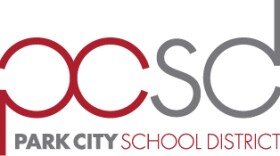The Park City School District Future of Education master plan outlines three major initiatives which could cost taxpayers up to $200 million.
KPCW has this update outlining where the candidates stand on the future of education plan.
The Park City School Board recently voted unanimously to create a building authority which would enable them to fund capital projects through other means besides a school bond.
Andrew Caplan represents District 2 and says the board has always had the authority to raise the capital levy but says he has no intention of using the building authority without public input. Caplan says with a building authority, there is more flexibility and not all the master planning projects are the same in size or scope. He also says there are public-private partnerships which may provide funding for some of the master plan projects.
“What we’ve learned from our financial advisers is that a lot of districts in the state are starting and forming building authorities to work on smaller projects or piece meal projects as they go. The downside with a general obligation bond is just timing. So if we have a general obligation bond on the ballot next November we wouldn’t be able to sell bonds till early the next year, receive the funds, etc. So, you know basically it would be 18 months from now. Doing a renovation to the high school to accommodate you know four or five for six or 700 kids, however many and it will accommodate, is a much bigger project than some annexes at elementary schools to have a couple other classrooms for kindergarten or pre-K.”
Write-in candidate Thomas Cooke who is running against Caplan in District 2, says even with an engaged community like Park City, the best efforts to communicate can fall short.
“As far as what the public knows about bonds, I mean this is maybe an example of where the board might think they're doing a great job of communicating with the public, but 90% of the people that I speak with about bonds don't know. They have the knowledge of the failure of the 2015 bond and they read in the paper about the creating of the bond authority and they don't know the difference fundamentally between a general obligation bond and a lease revenue bond. And so I've read with great interest what Andrew has said publicly about being another tool in the toolbox, being more nimble, being just another way to fund some of these smaller projects and I'm actually really pleased to hear him say that this board would never pursue some of the big ticket items without voter approval because that's something I feel strongly about.”
Board member Anne Peters is running unopposed for the District 1 seat. She says they’re doing an updated demographic study. A 2018 study projected 10% growth over 10 years. In fact, the enrollment has been flat since the study was done. 2021 enrollment numbers are not yet available.
“We wanted to start initially with what education looked like, not focusing on the buildings. Do we need buildings? What kind of buildings do we need? Do we need flex space? All of the things that we're seeing, and now feeling will be great to implement into the future of our buildings and our learning. So, we're in the process of doing an updated demographic study. We need to kind of hit pause and see who's coming and going and what it looks like and what the projections of the areas of growth will be. We're now looking for a construction general manager slash owner to facilitate the architect search. So, we haven't even really begun to put pen to paper, right? We're looking for the people that are going to take the work we've done and manage the process.”
Caplan highlights several concerns that he says were elevated through the master planning projects. He says there is uncertainty about how much growth will occur due to planned housing projects in the Basin.
“The biggest thing is that Treasure has outlived its life expectancy. It was built as an elementary school. It has secondary students, and it doesn't work. The community has spoken loudly that they want the ninth grade in the high school, so those combined things are catalysts for a lot of this. You know extra bandwidth capacity for universal pre-K is also needed, obviously getting the 8th grade into Ecker Hill Middle School.”
Cooke says his biggest concern is to have the highest quality teachers who can also live in the community.
“The question you asked was what was missing. My view of evaluating my research on the master plan is its very facility centric. You know despite the fact that the goal was to look at what education looks like, it's still, when you attach price tags to a lot of the things in the master plan, they're building and facility centric. So, my opinion is I think our greatest resource is what we have which is the quality of the teachers that we have. And a lot of these teachers that I know, they are personal friends of mine and neighbors of mine and live in my district. And you know they are parents and community members and have been in the community for a long time and they've been able to afford to live here on a teacher salary. We know from Planning Commission and regional issues, that's getting harder and harder to do.”
The forum includes more discussion on board communication, enrollment and teacher compensation and can be found here.









